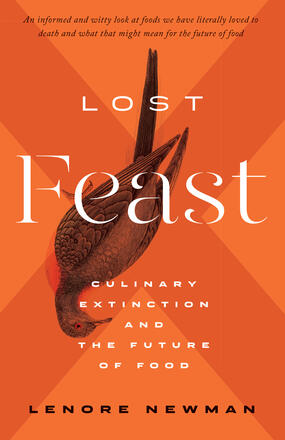
Lost Feast
Culinary Extinction and the Future of Food
Description
For readers of Michael Pollan and Anthony Bourdain comes an entertaining yet scholarly book about the foods we have loved to death. From passenger pigeons to megafauna, Newman identifies certain foods vulnerable to human appetite and what foods we’ll struggle to protect in the future.
Reviews
“Newman’s jaunts through the animal kingdom alternate with themed meals with her friend Dan as she ponders how historical extinctions are linked to our current food systems, what we can do about it, and how humans must follow the example of the famed New York ‘pizza rat,’ and adapt to the food that comes their way. ” — Booklist
“Edifying and entertaining … Never didactic and cautiously optimistic, Newman recognizes that there is hard work ahead to recalibrate the North American diet. She builds a compelling case for us human superpredators to rethink our food choices, and to be healthier for the environment and our fellow inhabitant species. Lost Feast is enjoyable reading about a serious topic. ” — Foreword Reviews, starred review
“Free-wheeling look at the flora and fauna we’ve eaten into oblivion. ” — Toronto Star
“An interesting and thought-provoking adventure alongside an engaging, wry-humored narrator, the book forces the reader to consider humans’ role in historic plant and animal extinctions, as well as how we might approach food more reasonably moving forward. ” — Civil Eats
“If you’ve ever wondered about the impact the human appetite has had on plans and animals, Lost Feast: Culinary Extinction and the Future of Food by Lenore Newman (2019, ECW Press, $24. 95) is for you. ” — WVNews